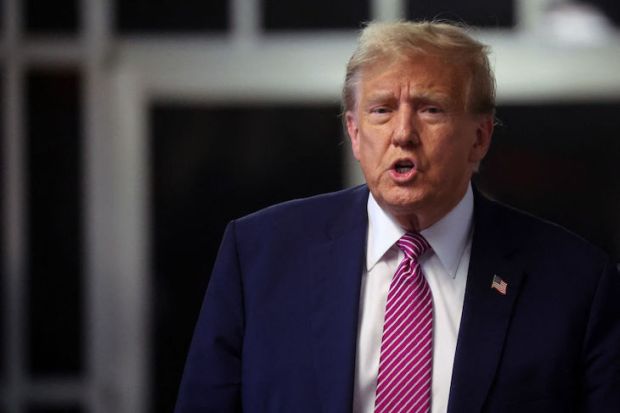Apparently, if Vladimir Putin had been a woman, everything would be just tickety-boo.
Speaking to German TV, Boris Johnson has said that Putin is the ‘perfect example of toxic masculinity’ and that had he been a women – ‘which he obviously isn’t’, Boris felt the need to clarify – then ‘I really don’t think he would’ve embarked on a crazy, macho war of invasion and violence in the way that he has.’
Johnson was using Putin’s example to argue the case that Nato and the West ‘need more women in positions of power’ – Liz Truss is likely to agree – but this also speaks to a dangerous tendency of modern democratic leaders to make sweeping and exaggerated statements presumably meant to be crowd-pleasers, which risk backfiring in all kinds of ways.
To be sure, Putin’s back-catalogue of carefully staged and lovingly photographed action man antics, from the bare-chested horseback riding to the deliberate use of gangster slang, all do speak to a certain overcompensation.
Likewise, while there is indeed a certain gendering of political leadership impulses, anyone who remembers Margaret Thatcher pushing her often uncertain cabinet into war over the Falklands, knows that things are never so cut and dried.
Those who may be tempted to assume Russian women are all icons of gentleness ought to ask Maria Zakharova, the pugnacious foreign ministry spokeswoman who slams western governments as having ‘neo-Nazi preferences’. Or Catherine the Great, who conquered and colonised the lands of Novorossia – which just happens to be where Russian troops are fighting today.
Arguably, Johnson’s comments should not be taken too seriously, just an example of Boris trying to project his inner ‘new man’. But there are two constituencies that often do take this kind of language seriously, which can become a problem for everyone.
The first is the Russians themselves. Ordinary Russians – much like ordinary Brits, for that matter – tend not to take their leaders that seriously (there is a strong vein of subversive humour in Russia, for example, but close ranks when outsiders do the same.
Johnson’s rhetoric, or Ben Wallace’s claims on LBC that Putin is a ‘lunatic’ with ‘small man syndrome’, are not going to go down that well in Russia, as one might expect.
The government newspaper Rossiyskaya Gazeta had some gentle fun with Johnson’s earlier suggestion at a meeting of the G7 that the assembled leaders take off their shirts to ‘show that we’re tougher than Putin’ and ‘show them our pecs’. The newspaper noted that Johnson ‘does not particularly watch his figure and prefers parties to diet and the gym.’
Russian social media has been rather less restrained about the latest broadsides, though, and this is going to be mobilised to help support Putin’s attempt to build a narrative that the war in Ukraine is necessary to stop the country from becoming the advance base of a ‘Russophobic West’.
Given the degree to which an increasingly toxic state media invents what it cannot reframe, arguably this is just a drop in the ocean. Perhaps more worrying is the other constituency which may take politicians’ words too seriously: politicians themselves.
All too often, throwaway lines and cute putdowns come to frame the policy debate. Most strikingly, former Senator John McCain’s claim that Russia was just ‘a gas station masquerading as a country’ certainly acquired too much traction with people who should have known better. These kinds of remarks explain some of the misconceptions about how quickly or easily sanctions would force Moscow to change its direction.
Putin’s invasion of Ukraine was clearly driven by serious misunderstandings about the nature of the country and its people. We may – and should – disagree with his assumptions about Nato and the potential threat it poses to Russia. But if we start simply thinking he’s insane, that there is no logic to his actions, or that it’s more about Freud than geopolitics, then we hobble ourselves.
We still need to try and see the world through Putin’s eyes. This is not to share his twisted worldview but to try and assess what he’ll do next and which of our policy options will work best.
Politicians are going to politic, of course. But if we’re going to be brandishing that big stick of military aid to Ukraine and economic warfare against Russia, there’s no harm in talking a little more softly, too.
Got something to add? Join the discussion and comment below.
Get 10 issues for just $10
Subscribe to The Spectator Australia today for the next 10 magazine issues, plus full online access, for just $10.



















Comments
Don't miss out
Join the conversation with other Spectator Australia readers. Subscribe to leave a comment.
SUBSCRIBEAlready a subscriber? Log in